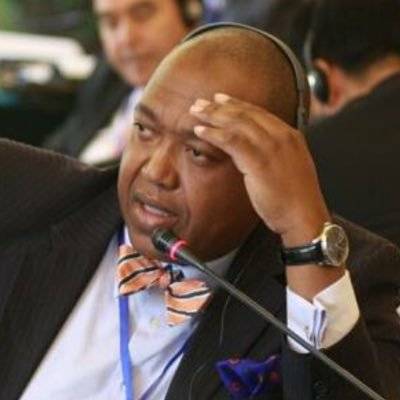King Abdullah of Jordan met with the leaders of Saudi Arabia, Kuwait and the UAE in Riyadh, Saudi Arabia yesterday to discuss the ongoing protests in his country. Jordan has been experiencing sustained protests mainly in the streets of its capital Amman since 30 May 2018. The protests were triggered by the government’s plans to increase income tax “at a time when ordinary Jordanians were already struggling with inflation”.
These events led to the sacking of Prime Minister Hani Mulki by King Abdullah on 4 June 2018. The government has also moved swiftly and cancelled plans to increase taxes and other scheduled austerity measures in order to quell further protests. Omar Razzaz, the new prime minister who replaced Mulki, was given the difficult task of stabilising the economy and essentially bringing peace to the streets of Amman.
The three Gulf countries pledged to provide Jordan with a $2.5 billion aid. The money is expected to provide a lifeline to the country as it navigates its way back to normalcy. The swiftness of the Gulf countries in trying to ease tensions in Jordan has raised suspicions in the region and beyond. After all, it is these leaders who refused to prioritise the ongoing Gaza crisis during the last Dammam Summit in Dhahran, Saudi Arabia on 15 April 2018. The Gaza crisis has resulted in hundreds of deaths and injuries.
READ: Jordan’s lesson: we should stop beating ourselves up
There are a number of reasons why the Gulf countries have moved swiftly in Jordan. Sadly their intentions have little to do with the welfare of the people of Jordan, apart from Kuwait’s leader Sheikh Jaber Al-Ahmad Al-Sabah, who has been seen by many in the region as a unifier. Mohammed bin Salman of Saudi Arabia and Mohammed bin Zayed of the UAE have been accused of grandstanding. Their positions on Palestine, for example, have made them unpopular. Israeli media reported last month that “Saudi Crown Prince Mohammed bin Salman castigated the Palestinian leadership for rejecting opportunities for peace with Israel for decades, and said they should either start accepting peace proposals or shut up”.
Bin Zayed and Bin Salman want to present themselves as the leaders of the region, yet “their intervention in Jordan is nothing short of a public relations”, their critics argue. Their involvement in Jordan, which seeks to portray them as on the side of the people, is meant to boost their low image in the region. Second, there is a semblance of accuracy in Al-Jazeera’s Ali Yunis’ report “Jordan crisis: Why Gulf States are rushing to step in”. Yunis argues that the Gulf intervention is certainly meant to avoid “a second Arab Spring at their doorstep”. Indeed there is a possibility that this could culminate in protracted political turmoil in Jordan – this is something most in the region would try by all means to avoid after what happened in Syria. Therefore nipping this in the bud is essential for the Gulf countries.
Jordan has been relatively peaceful and that has indirectly provided security for its neighbour Israel. Jordan and Israel signed a peace treaty in 1994 and both countries have increased political and economic cooperation since, particularly on matters of security. The treaty has also facilitated the broadening of economic cooperation. According to the Times of Israel, Israel signed “a historic 15-year, $10 billion gas deal with Jordan in September 2016”.
Israel has been lax when it comes to securing its border with Jordan, relegating most of that responsibility to Jordan. There is one significant reason why this has been the case over the years and that is that Jordan has done relatively well in maintaining security. Most Palestinians, especially those in the West Bank, use Jordan as the point of exit to the outside world. Many Palestinians hold Jordanian passports and many would hesitate to jeopardise that privilege. The protests in Jordan have caught Israel by surprise, something had to be done urgently. Saudi Arabia and the UAE – Israel’s allies in the region – had to step in and prevent the situation from getting out of control.
READ: On the political and cultural lessons of the Jordanian popular movement
Jordan shares a long border with Saudi Arabia. Furthermore, Jordan hosts a number of Palestinian refugees and it has recently absorbed millions of Syrian refugees. According to the United Nations High Commission for Refugees (UNHCR), as of November 2015, UNHCR reported that there are 4,289,994 Syrian “persons of concern” of whom 630,776 are registered as refugees in Jordan. There are about1.4 million Syrian refugees in Jordan, only 20 per cent are living in the Za’atari, Marjeeb Al-Fahood, Cyber City and Al-Azraq refugee camps.
Jordan has argued that the influx of Syrians has impacted on its capabilities to deliver services to its people. The collapse of the government in Jordan could lead to a social, economic and indeed political crisis in the Middle East. There could be another wave of refugees and this time it could directly affect Saudi Arabia. It is therefore important for Saudi Arabia to ensure that there is stability inside Jordan. They will, therefore, do whatever it takes to calm the situation down in that country.
Finally, Saudi Arabia has varying relations with its neighbours. Jordan is amongst the few “willing and adherent” neighbours. Saudi Arabia is waging a war on its southern border with Yemen and its relations with Qatar continue to deteriorate. Kuwait and Oman have shown greater independence in their foreign policy by refusing to join the blockade against Qatar. It is only Jordan, Bahrain and the UAE who are firmly in alliance, at various political and economic levels with Saudi Arabia.
The views expressed in this article belong to the author and do not necessarily reflect the editorial policy of Middle East Monitor.

![Jordanian King Abdullah II (L) meets with Saudi Arabian King Salman bin Abdulaziz Al Saud (R) in Riyadh, Saudi Arabia on 13 December 2017 [Bandar Algaloud/Saudi Kingdom Council/Anadolu Agency]](https://i0.wp.com/www.middleeastmonitor.com/wp-content/uploads/2017/12/2017_12-13-king-salman-and-jordan-king20171212_2_27468320_28773307.jpg?fit=920%2C613&ssl=1)







